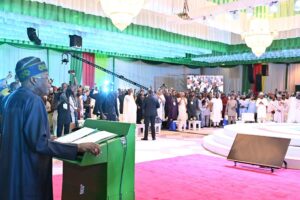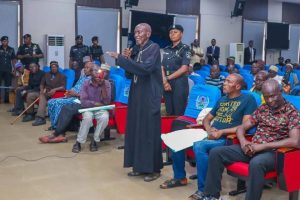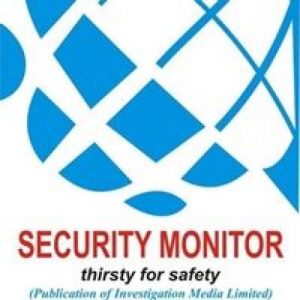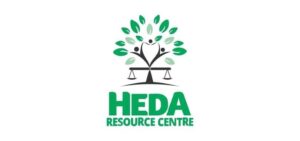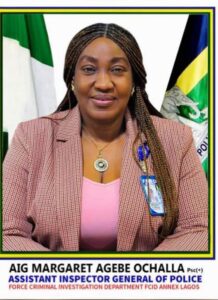Procurement Fraud: Accountability Lab Holds Town Hall Meeting To Drive Transparency In Nigeria
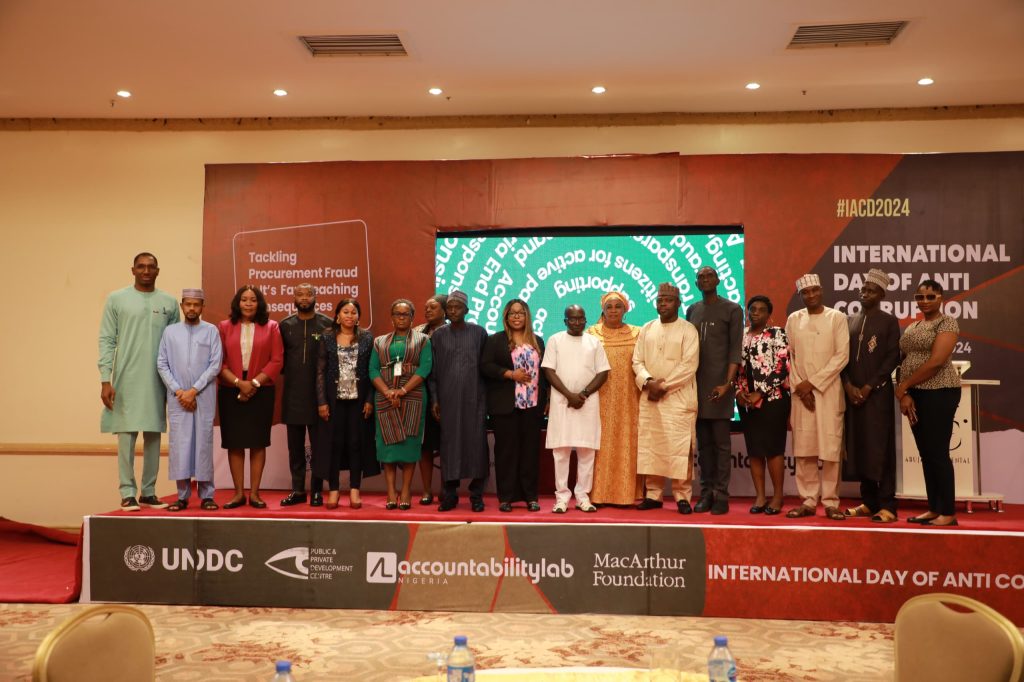
By Karen Adirije/ABUJA// To commemorate the 2024 International Anti-Corruption Day, Accountability Lab Nigeria on Tuesday holds a high-level town hall meeting in Abuja to address systemic challenges in Nigeria’s public procurement processes.
The event which was held in partnership with the Public and Private Development Centre (PPDC), and the United Nations Office on Drugs and Crime (UNODC), with the support of John D. and Catherine T. MacArthur Foundation, was themed “Tackling Procurement Fraud and Its Far-Reaching Consequences: A Collective Responsibility,” brought together government officials, civil society organizations, private sector representatives, and international development partners.
In Nigeria, a lack of accountability in public service remains a significant challenge, leading to abuse of procurement processes and misuse of public resources. Currently, public procurement processes are carried out without transparency, such as unpublished procurement information, which leaves citizens in the dark about how decisions are made and deprives them of the chance to track the progress of projects. According to a report by the Public and Private Development Centre (PPDC), accessing procurement information through Freedom of Information (FOI) requests often proves challenging, with over 56% of such requests receiving no response, reflecting a significant lack of transparency in public procurement processes. This persistent lack of accountability in public procurement remains a critical challenge despite the adoption of frameworks such as the Public Procurement Act and initiatives like the World Bank’s State Fiscal Transparency, Accountability, and Sustainability (SFTAS) program, inefficiencies, mismanagement, and fraud persist. These systemic issues also hinder
competitive and fair business practices, limit oversight, and obstruct the government’s ability to deliver public services.
The event offered a platform for meaningful dialogue, focusing on leveraging innovative technologies, such as AI-driven open contracting and gender-responsive procurement frameworks, to enhance transparency and accountability. The event featured interactive sessions designed to encourage open discussions, participatory feedback, and collaborative problem-solving. Key activities included a panel on innovative approaches to procurement integrity, highlighting AI-driven transparency initiatives in Ekiti, Edo, and Plateau States, as well as gender-responsive procurement practices in Kaduna State. Participants also explored the implementation of key recommendations from the United Nations Convention Against Corruption (UNCAC) and provided feedback on addressing gaps between policy and practice.
The interactive town hall session enabled diverse stakeholders to co-create solutions aimed at expanding AI adoption for procurement transparency, advancing gender equity in procurement, and promoting ethical business practices. Participants made concrete commitments to implement recommendations for sustainable procurement reforms, including supporting responsible business conduct, enhancing open contracting, and addressing unimplemented UNCAC recommendations.


